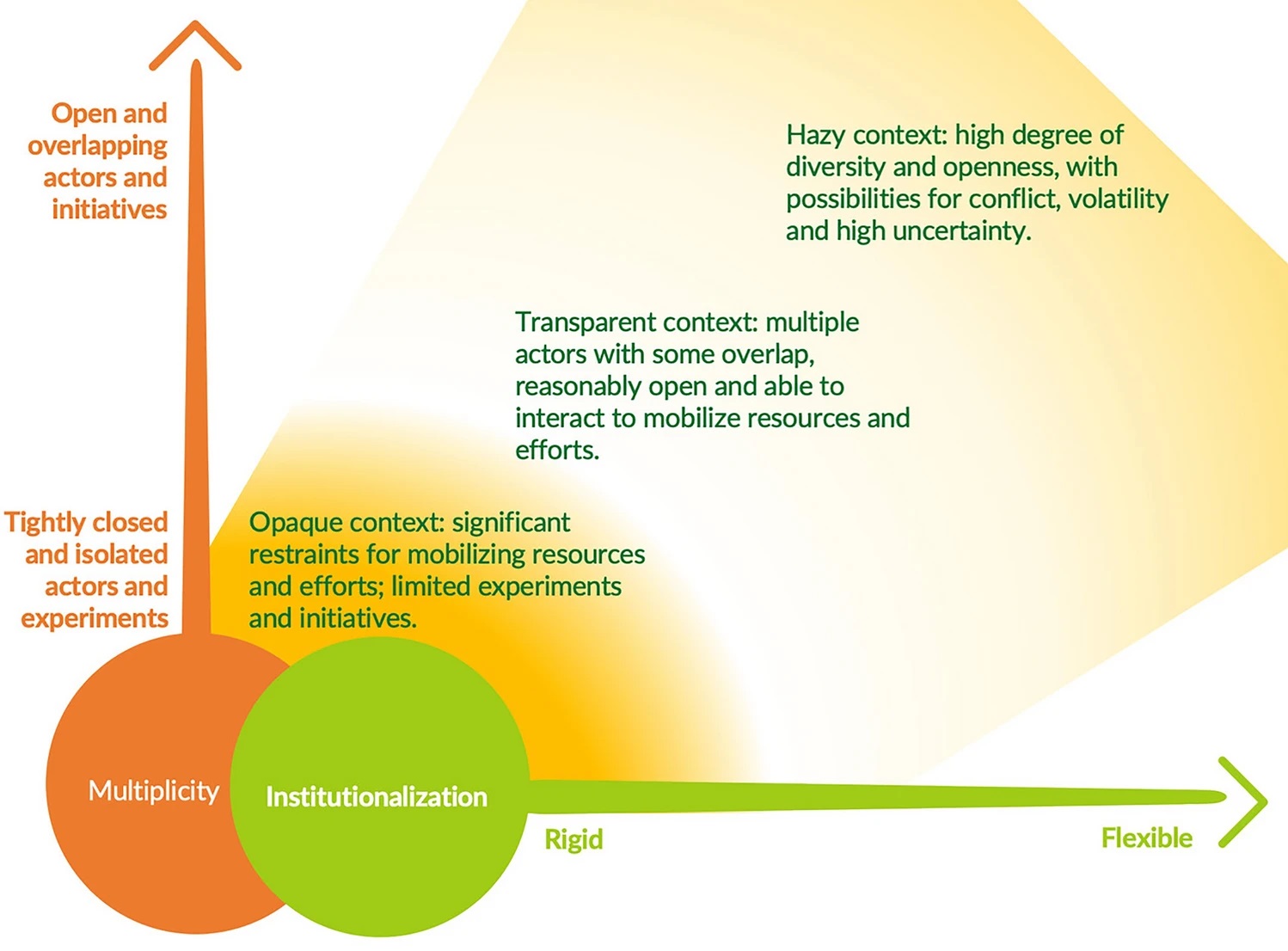Covid-19 pandemic
A crisis is not always an opportunity for transformation — this new study explains why

For many change agents, the Covid-19 pandemic was not an opportunity, but made their work more difficult. Photo: Ewien van Bergeijk - Kwant via Unsplash.
For change agents, the COVID-19 pandemic created new barriers and uncertainties rather than a chance for positive change, a new study finds
- Researchers tried to find evidence for the "opportunity narrative" in the wake of the Covid-19 pandemic
- A lot of sustainability and justice efforts were severely thrown back or suffered a backslide due to Covid-19 and the different responses to it
- Uncertainties mean that the Covid-19 pandemic never turned into opportunities for many of the change agents.
It is a commonly held belief that crises can provide moments of change and transformation, often framed as opportunities for innovation, growth, and progress. Within transformation research, this is referred to as the “opportunity narrative”. But is it really that easy?
In a new study published in the journal Sustainability Science, researchers try to find evidence for this "opportunity narrative" in the wake of the Covid-19 pandemic. The authors synthesize five different roles that crisis can play throughout phases of longer-term transformation processes. They then look at a number of change agents across six African countries, all of whom work with transformations towards sustainability and justice. Was the pandemic an opportunity for them? Or did it actually make their work much harder?
We did not observe clear positive progress that improved sustainability and justice; rather, there were ongoing indications of worsening inequality — as other studies have begun to confirm.
Michele-Lee Moore, lead author
Throwbacks, not transformations
The study, authored by an international team of scientists, including centre researchers Michele-Lee Moore and Per Olsson, points to the latter.
“We did not observe clear positive progress that improved sustainability and justice; rather, there were ongoing indications of worsening inequality – as other studies have begun to confirm,” says lead author Michele-Lee Moore.
While many of the change agents were able to make progress on different scales before the pandemic, a lot of these efforts were severely thrown back or suffered a backslide due to Covid-19 and the different responses to it. As one participant working with girls’ education stated:
“What a lot of work we have done towards increasing enrolment, towards ensuring that girls, you know, move higher! And all of this [pandemic] has come to bring us back.”
According to the study, this was one of several impacts change agents faced during the pandemic.
Emerging uncertainties
With these regressions in progress, participants realized that their pre-pandemic efforts weren’t as transformative as expected and did not always change the aspects of the system they had intended. This shows the challenging nature of preparing for transformative change. Despite the uncertainties, questioning and reflecting on their own work in this way might be a positive outcome that strengthens change agents’ work longer term, according to the study.
Change agents acknowledged that Covid-19 made problems in current systems visible, but did not see much interest from governments or funders to change those systems raising uncertainty about the momentum of change over time. While change agents expressed exhaustion from the many impacts and uncertainties, the study also documents the numerous strategies and efforts change agents continued to make during these difficult times.

Opportunity contexts can shift between opaque, transparent, and hazy. Whether change agents can mobilize resources in these different contexts relates to the multiplicity of actors, organizations, and niche experiments, along with the degree of institutionalization of the field or system. Illustration by L. Rose.
Increased surveillance and legitimacy for it also raised new uncertainties. The enforcement of lockdowns and other restrictions set new precedents for militarized responses to civil crises. This might make the work of change agents more difficult in the future.
Altogether, these uncertainties mean that the Covid-19 pandemic never turned into opportunities for many of the change agents. This challenges the “crisis as opportunity” narrative, according to the authors.
“The oversimplification of the complex dynamics of systems does injustice to the opacity, uncertainty, and challenges precipitated by crisis,” explains co-author Lauren Hermanus from the University of Cape Town.
Moore, M-L., Hermanus, L., Drimie, S., Rose, L., Mbaligontsi, M., Musarurwa, H., Ogutu, M., Oyowe, K. & Olsson, P. 2023. Disrupting the opportunity narrative: navigating transformation in times of uncertainty and crisis. Sustainability Science 18, 1649-1665.







